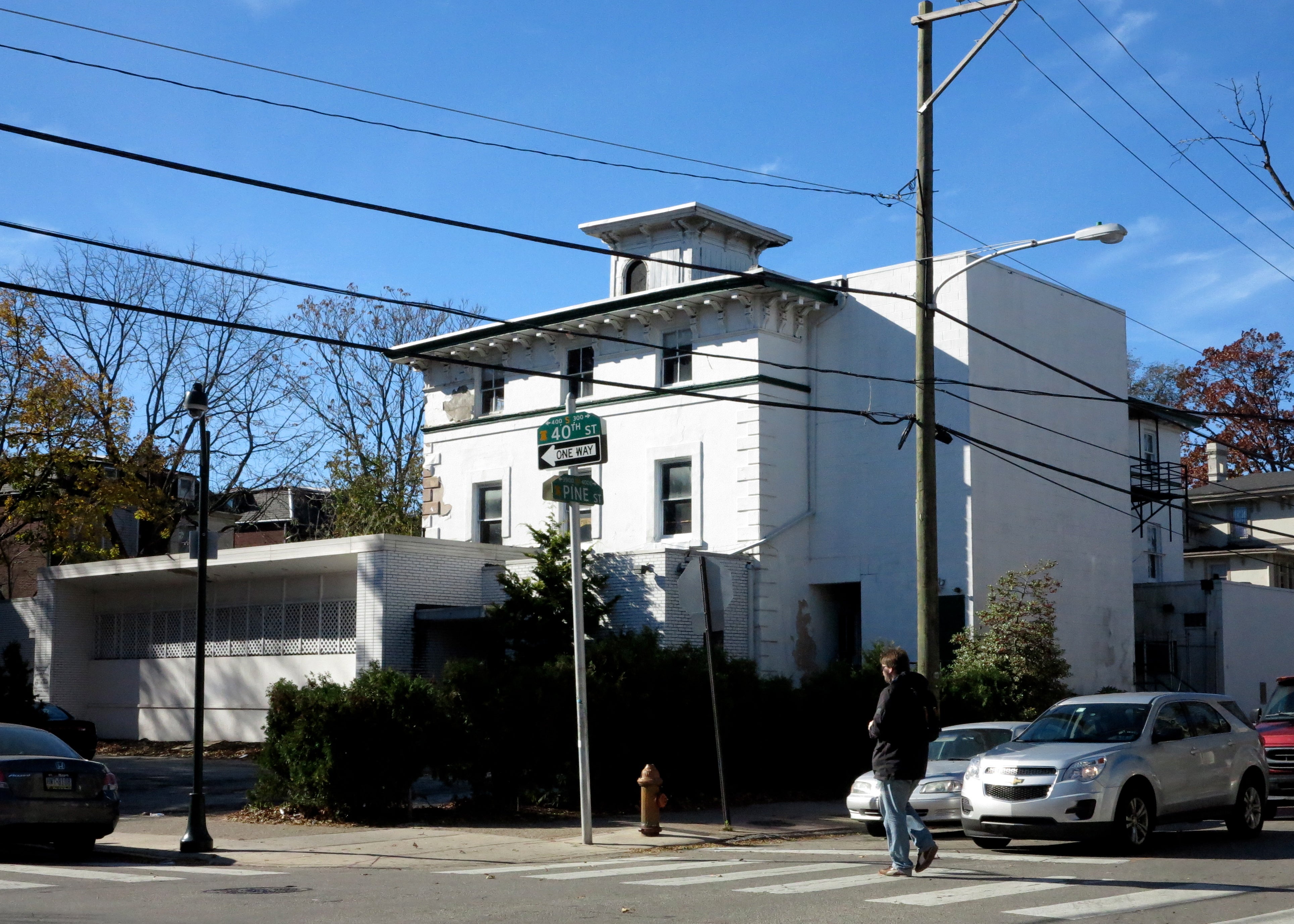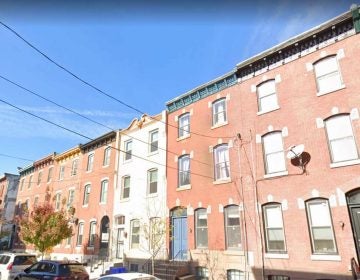Mansion at 40th and Pine goes before Historical Commission again

Last week, the financial hardship committee of the Philadelphia Historical Commission voted to approve a request from the University of Pennsylvania and developer Jonathan Weiss to amend its May 2012 approval of a hardship designation for the historically certified mansion at 40th and Pine streets. The committee vote was advisory. The full Commission will consider the request at its next meeting, on January 9th.
A finding of financial hardship allows an owner to demolish a historic building. When the Commission granted hardship to Penn, it imposed a condition that no demolition work could take place until all building permits for the proposed apartment project that was meant to take its place were obtained.
In November, Penn requested that the Commission remove the condition that it must receive building permits before beginning any demolition work. In his letter to the Commission, attorney Matt McClure argued that in cases where the Commission finds that a hardship exists, any redevelopment proposed for a historic site is separate and unrelated to the finding of hardship for the existing property.
A finding of hardship, according to the preservation ordinance, means that the demolition is necessary in the public interest, or that “the building, structure, site, or object cannot be used for any purpose for which it is or may be reasonably adapted.” The Commission is authorized to impose conditions on permits as long as they “reasonably advance the purposes of the ordinance.”
In his recommendation letter, Commission director Jon Farnham said that the Commission should only impose conditions on demolition when it finds that the proposed redevelopment will serve a greater public interest than the preservation of the historic building. In that case, the Commission is essentially protecting the public benefit of the property through to the redevelopment.
In the other case, which applies to the building at 40th and Pine streets, the building is found to be value-less to the owner in its current form. Requiring it to remain standing, even temporarily through a condition on demolition work, could constitute an “unconstitutional taking,” Farnham said.
As PlanPhilly readers will know, the Commission’s original finding of hardship—and the zoning board’s approval of the redevelopment plans—have been under appeal from a group of near neighbors for years.
Matt McClure said at the committee hearing last week that Penn is not trying to do an end-run around the courts, but is only seeking permission to get to work as soon as the appeals of the hardship finding are exhausted. The hardship decision was affirmed by a split decision of the Board of L&I Review and by a Common Pleas court judge. It is now before the Commonwealth Court.
McClure said that if it weren’t for the litigation, the new project would be under construction by now. Penn is currently pursuing a five-story apartment complex geared to graduate students. Neighbors previously rejected a proposed compromise plan that would have kept the existing building. McClure said Penn continues to negotiate toward a compromise.
There was some argument on Friday among the committee members about the underlying historic value of the property. McClure suggested that if the building were nominated for historic designation today, it wouldn’t be approved. Committee member Dominique Hawkins said that the building is “so, so compromised” by a number of additions added while the building was in use as a nursing home.
Paul Boni pointed out that everyone was “so proud and happy” to be maintaining the historic value of the building under previous proposals that would have kept the mansion intact. He asked that the Commission impose an additional condition that demolition can’t begin until all the hardship appeals are exhausted.
Aaron Wunsch and Jeff Cohen, two Penn professors who have closely followed the case and advocated for preservation of the building, said they wished the compromise proposals had been successful. Cohen said he worried that the process that Penn went through to get this hardship designation could be imitated by other historic-property owners and lead to a widespread demolition of historic properties.
In the end, the committee voted 2-1 to recommend removing the stipulation that requires Penn to get building permits before doing any demolition work. The full Commission will make the ultimate decision.
Either way, the appeals continue.
WHYY is your source for fact-based, in-depth journalism and information. As a nonprofit organization, we rely on financial support from readers like you. Please give today.






